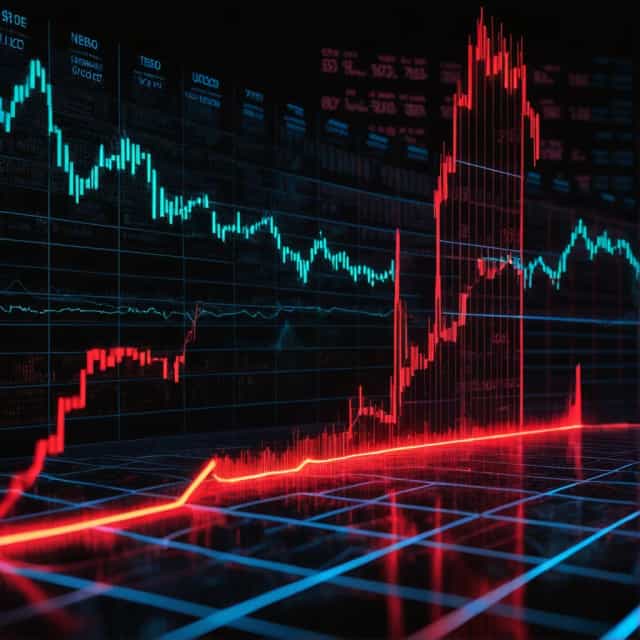
Image source: Block Media
South Korea’s President Lee Jae-myung Issues Alert on Overheated Real Estate Market, Advocates Diversified Investment Strategies
Real Estate Market Risks and Japan’s Housing Bubble Warning
South Korea’s President Lee Jae-myung has sounded an urgent alarm over the escalating risks within the country's real estate sector, highlighting parallels to Japan’s infamous housing bubble collapse. During a Cabinet meeting convened at the Presidential Office in Yongsan, Seoul, on the 14th, President Lee declared, “Real estate prices are excessively overvalued, and the likelihood of our market facing a situation similar to Japan’s past housing bubble burst is very high.” This stark warning underscores growing concerns about market instability and the precarious state of the nation's economic foundation tied to inflated property values.
Global Comparisons and Housing Bubble Concerns
President Lee drew attention to South Korea’s real estate prices relative to national income, which rank among the highest globally. Such disproportionate valuations, he argued, signal a looming threat of a housing bubble collapse. To mitigate this risk, President Lee urged South Koreans to rethink their investment priorities and explore alternatives to real estate. “We now have various alternative investment options outside of real estate,” he said, advocating for diversification into capital markets and other productive economic sectors.
Addressing senior officials present, including Financial Services Commission Chairman Lee Eog-weon and Minister of Land, Infrastructure, and Transport Kim Yun-deok, President Lee questioned the sustainability of current market dynamics. “Isn’t this merely a game of passing the bomb around? At some point, it will inevitably explode.” This evocative metaphor served as a call to action, urging policymakers to pivot toward productive financing models and reassess national investment strategies.
Tackling Speculative Market Distortions
President Lee emphasized the necessity of decisive countermeasures to combat speculative distortions and abnormal price movements in the real estate market. “Such actions could jeopardize the nation’s economy. We must intervene decisively,” he declared, prioritizing the containment of speculative behaviors. Directing specific attention to Minister Kim, he stated, “Treat this as a top priority and deal with it with utmost resolve.”
A particular challenge raised by President Lee is the growing misuse of artificial intelligence (AI) in propagating misleading or exaggerated advertisements via social media platforms to inflate real estate values artificially. “There are even cases raising suspicions of deliberate manipulation of market prices,” he revealed, identifying such practices as dangerously disruptive to market stability. President Lee called for robust regulatory measures to address these illegal and unethical activities. “Prepare fundamental countermeasures to address these issues,” he instructed, urging relevant government agencies to implement stringent policies.
Navigating Global Economic Uncertainty
Broadening the scope of discussion, President Lee addressed the compounded risks posed by global economic uncertainties. He noted that intensifying trade conflicts worldwide are compounding challenges for South Korea, exacerbating economic volatility and impacting citizens’ livelihoods. “We must focus our policy efforts on mitigating negative impacts on the real economy and stabilizing inflation,” he advised, emphasizing the importance of proactive measures to shield the nation’s economy from external shocks.
Strategies to Boost the Domestic Economy and Global Competitiveness
President Lee firmly advocated for strengthening the domestic economy via diversification tactics aimed at reducing over-reliance on limited markets. “Simultaneously, we need to pursue technological innovation to enhance our competitiveness in global markets,” he added, stressing the value of forward-looking policies. To fortify economic resilience, President Lee also underscored the necessity of aligning governmental and political efforts to support economic revival efforts. “Political leaders must speak with one voice when it comes to saving the economy,” he urged, emphasizing the importance of unified and cohesive leadership to navigate complex economic challenges.
Conclusion: A Call for Sustainable Action
President Lee Jae-myung’s comprehensive address serves as both a caution and a roadmap for South Korea’s policymakers and citizens. His calls to curb speculative practices, diversify investments, regulate emerging technologies, and prepare for global economic disruptions underscore the pressing need for a sustainable, resilient economic framework. As South Korea faces mounting risks in its real estate market and broader economic landscape, decisive and unified action will be critical to ensuring long-term stability and prosperity.










